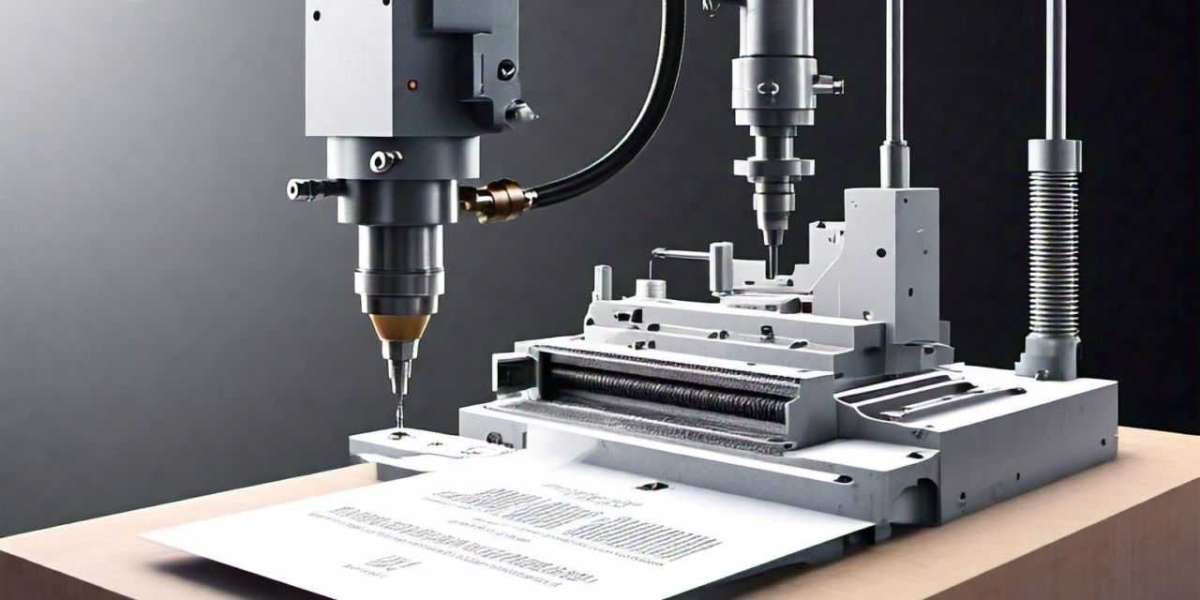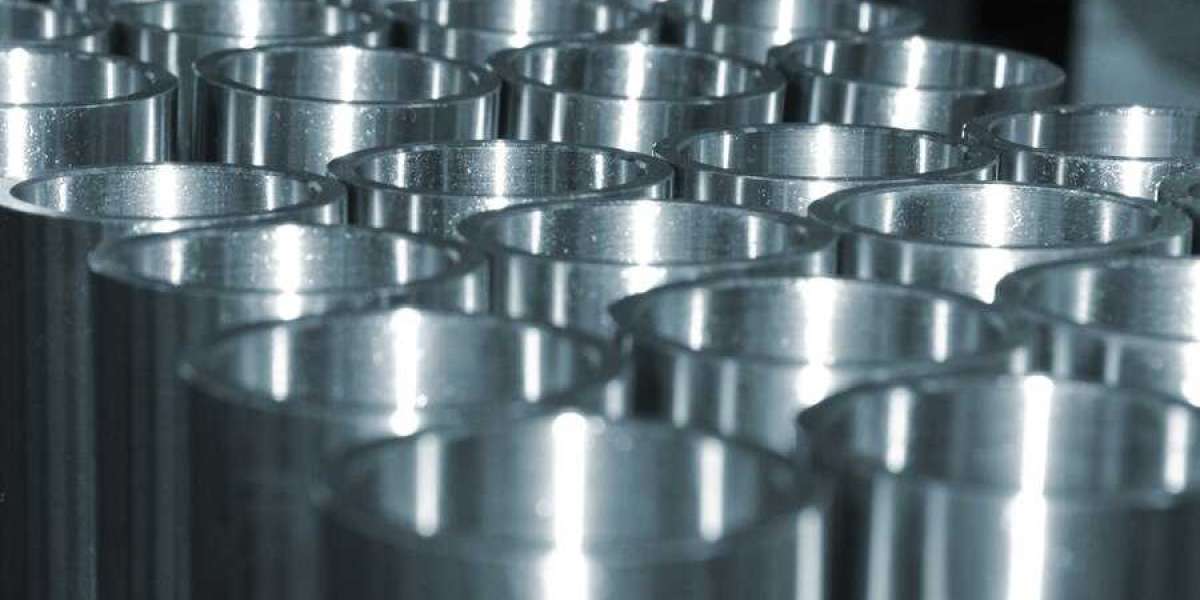CNC precision machining has revolutionized modern manufacturing by delivering unparalleled accuracy, efficiency, and flexibility. Whether it’s producing high-performance aerospace components or intricate medical devices, CNC precision machining is at the heart of industries that demand precise and reliable parts.
This advanced manufacturing process involves computer-controlled machines that shape materials into specific designs with remarkable precision. In this article, we’ll explore what CNC precision machining is, its benefits, processes, materials, and how it shapes industries worldwide.
What Is CNC Precision Machining?
Definition of CNC Precision Machining
CNC (Computer Numerical Control) precision machining is a subtractive manufacturing process where material is removed from a workpiece to create precise parts. The process uses pre-programmed software to control tools and machinery, ensuring accuracy and consistency.
How It Works
The process begins with a CAD (Computer-Aided Design) model of the desired part. This design is then converted into machine-readable code through CAM (Computer-Aided Manufacturing) software. CNC machines use this code to perform precise cutting, drilling, milling, or turning operations to shape the material.
Key Features of CNC Precision Machining
- Tight tolerances as low as ±0.001 inches.
- High repeatability for mass production.
- Compatibility with a wide range of materials.
Benefits of CNC Precision Machining
- Unmatched Precision and Accuracy
CNC machines can achieve extremely tight tolerances, making them ideal for industries where even the smallest error is unacceptable. - Enhanced Efficiency and Productivity
Automated processes reduce manual intervention, speeding up production and minimizing errors. - Material Versatility
CNC precision machining works with metals, plastics, composites, and ceramics, catering to diverse industrial needs. - Cost-Effective for Complex Designs
While the initial setup costs may be high, CNC machining is cost-efficient for complex parts, especially in high-volume production. - Flexibility in Design and Customization
With CNC machining, manufacturers can produce parts with intricate geometries and unique specifications, allowing for customization.
Types of CNC Machines Used in Precision Machining
- CNC Milling Machines
Milling machines use rotating cutting tools to shape materials by removing layers. They are ideal for creating complex geometries, slots, and contours. - CNC Lathes
Lathes rotate the workpiece while a stationary cutting tool removes material. This is commonly used for cylindrical parts such as shafts and bolts. - CNC Drilling Machines
Drilling machines create precise holes in various sizes and depths, often used as a preliminary step in complex machining processes. - CNC Grinders
Grinders are used for achieving ultra-smooth surfaces and precise dimensions, often required in high-precision applications like aerospace.
Core Processes in CNC Precision Machining
- Turning
In CNC turning, the workpiece is rotated while a cutting tool shapes the exterior. It is commonly used for producing cylindrical parts like pipes and shafts. - Milling
CNC milling involves a rotating tool that removes material to create intricate designs, holes, and flat surfaces. It’s versatile and used across industries. - Drilling
This process involves creating holes with tight tolerances, which can later be tapped or threaded. - Surface Grinding
Grinding ensures smooth finishes and accurate dimensions, often used for parts requiring high surface quality.
Materials Used in CNC Precision Machining
CNC machining accommodates a variety of materials, allowing manufacturers to choose based on the application and environment.Our company specializes in customized manufacturing services, delivering tailored solutions to meet unique client needs.
Metals:
- Aluminum: Lightweight, corrosion-resistant, and easy to machine.
- Stainless Steel: Durable, strong, and used in medical and industrial applications.
- Titanium: Combines strength and lightness, often used in aerospace and medical implants.
Plastics:
- ABS: Affordable and versatile for prototyping and general-purpose applications.
- PEEK: High-performance plastic resistant to heat and chemicals, used in aerospace and medical fields.
- Polycarbonate: Impact-resistant, ideal for electronics and automotive parts.
Composites and Ceramics:
- Carbon fiber composites and ceramics are increasingly used for lightweight yet strong components in high-performance applications.
Applications of CNC Precision Machining
CNC precision machining is a cornerstone of several industries, including:
- Aerospace and Defense
- Components like turbine blades, brackets, and landing gear require high precision and reliability.
- Automotive
- Engine parts, gear systems, and chassis components are produced using CNC machining for optimal performance.
- Medical Technology
- CNC machines manufacture surgical tools, prosthetics, and implants with extreme accuracy and biocompatibility.
- Electronics
- High-performance electronic devices rely on CNC-machined parts for connectors, heat sinks, and casings.
- Industrial Machinery
- CNC machining produces critical components for industrial equipment, such as gears, valves, and bearings.
Technology in CNC Precision Machining
- Role of CAD and CAM Software
- CAD (Computer-Aided Design): Used to create precise 3D models of parts.
- CAM (Computer-Aided Manufacturing): Converts CAD models into machine instructions for precise production.
- IoT and Smart Manufacturing
IoT-enabled CNC machines provide real-time data on production, enhancing efficiency and reducing downtime. - Automation and Robotics
Robotic arms integrated with CNC machines improve speed and accuracy, especially in repetitive tasks. - AI and Machine Learning
Artificial intelligence is optimizing tool paths, predicting maintenance needs, and improving production efficiency.
Challenges in CNC Precision Machining
- High Initial Costs
The setup and programming of CNC machines can be expensive, especially for small production runs. - Complex Geometries
Creating parts with intricate designs requires advanced machines and skilled operators. - Material Constraints
Some materials, such as hardened steel or ceramics, are harder to machine, increasing production time and cost. - Maintaining Tight Tolerances
Achieving extremely tight tolerances requires precise programming and tool calibration.
Quality Assurance in CNC Precision Machining
- Dimensional Inspections
Tools like coordinate measuring machines (CMM) and laser scanners ensure that parts meet design specifications. - Surface Finishing
Quality control ensures smooth finishes, free from burrs or imperfections. - Adherence to Standards
Compliance with certifications like ISO 9001 and AS9100 ensures parts meet industry standards for quality and safety.
Future Trends in CNC Precision Machining
- AI-Driven Automation
Artificial intelligence will continue to enhance CNC machining by automating complex tasks and optimizing workflows. - Green Manufacturing
Sustainability initiatives are driving the adoption of energy-efficient machines and eco-friendly materials. - Advanced Materials
The use of lightweight, high-performance materials like graphene and advanced composites will expand CNC machining capabilities. - Hybrid Manufacturing
Combining CNC machining with additive manufacturing (3D printing) is opening new possibilities for rapid prototyping and production.
Conclusion
CNC precision machining is the backbone of modern manufacturing, enabling industries to produce high-quality, complex components with unmatched accuracy. By leveraging advanced technologies like CAD/CAM, IoT, and AI, CNC machining continues to evolve, shaping the future of production.We are precision custom machining manufacturers, providing high-quality, tailored components for diverse industries."
Whether you’re in aerospace, medical technology, or electronics, CNC precision machining offers the precision, reliability, and scalability needed to meet the demands of modern industries. As the technology advances, its role in innovation and sustainability will only grow stronger.
FAQs
- What is CNC precision machining?
CNC precision machining is a computer-controlled manufacturing process that produces precise parts by removing material from a workpiece. - What materials can CNC machines handle?
CNC machines work with metals like aluminum and stainless steel, plastics like ABS and PEEK, and advanced materials like composites and ceramics. - Which industries use CNC precision machining?
Industries such as aerospace, automotive, medical, electronics, and industrial machinery heavily rely on CNC machining. - What are the benefits of CNC machining?
Benefits include unmatched precision, efficiency, material versatility, and the ability to produce complex designs. - How is technology shaping CNC precision machining?
Technologies like CAD/CAM software, IoT, and AI are enhancing the accuracy, efficiency, and sustainability of CNC machining processes.














